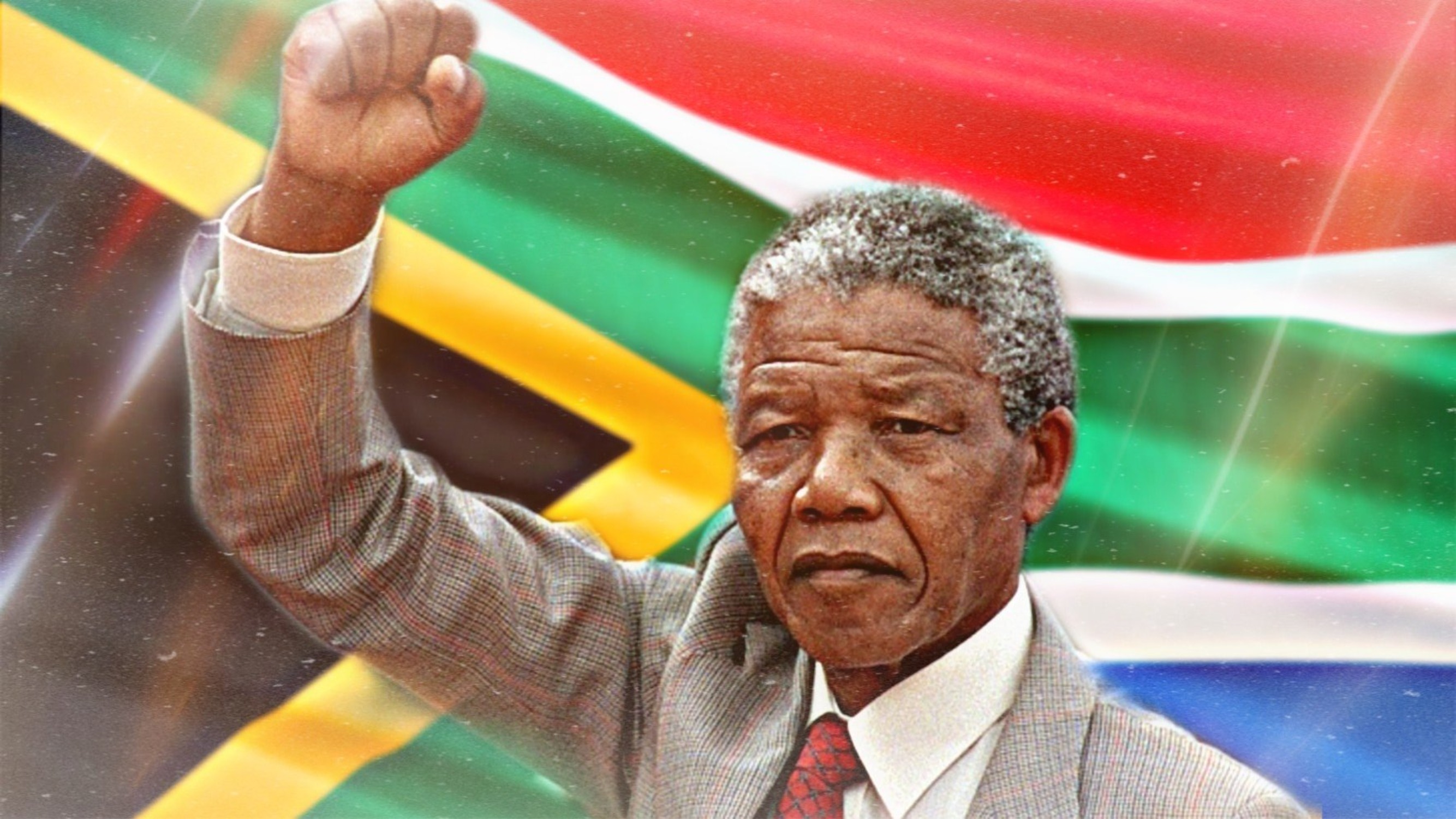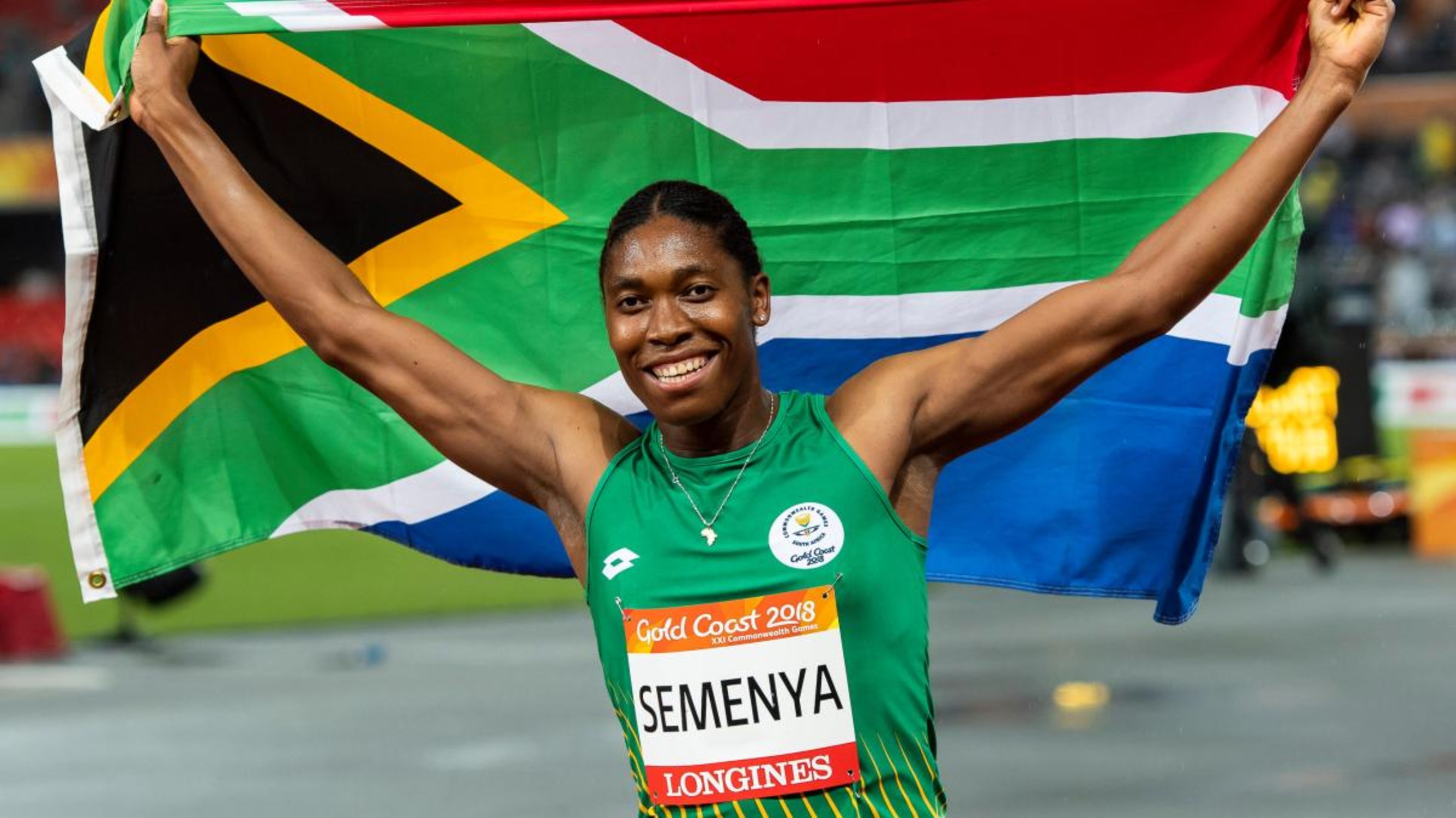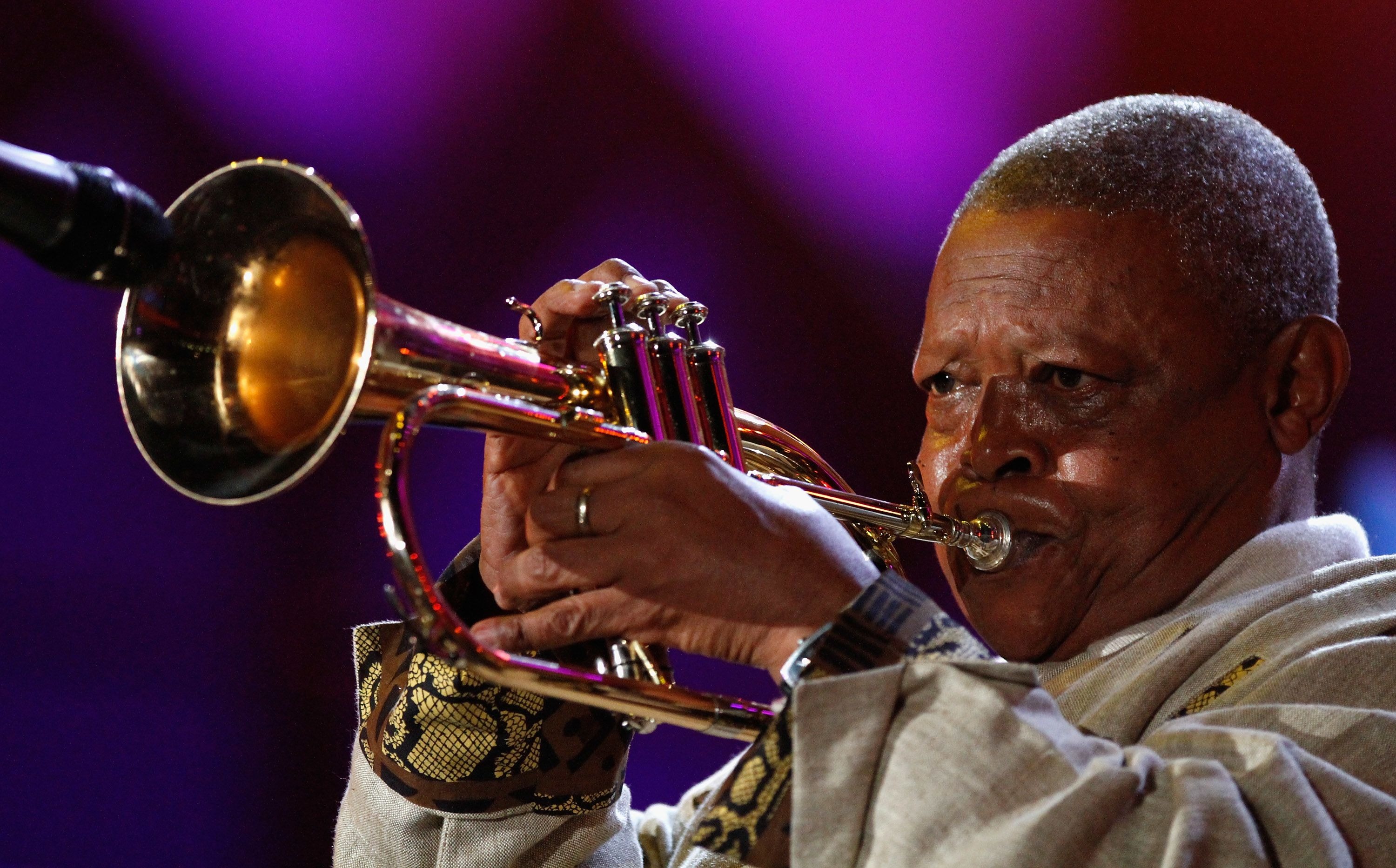Famous People From South Africa - Trailblazers Of The Rainbow Nation
Explore the captivating narratives of famous people from South Africa, a nation steeped in rich history and diverse talents. From political trailblazers like Nelson Mandela to global stars like Charlize Theron, this collection delves into the profound impact these iconic South Africans have had on their nation and the world.
Author:Paolo ReynaReviewer:Iram MartinsAug 17, 202488.3K Shares1.2M Views
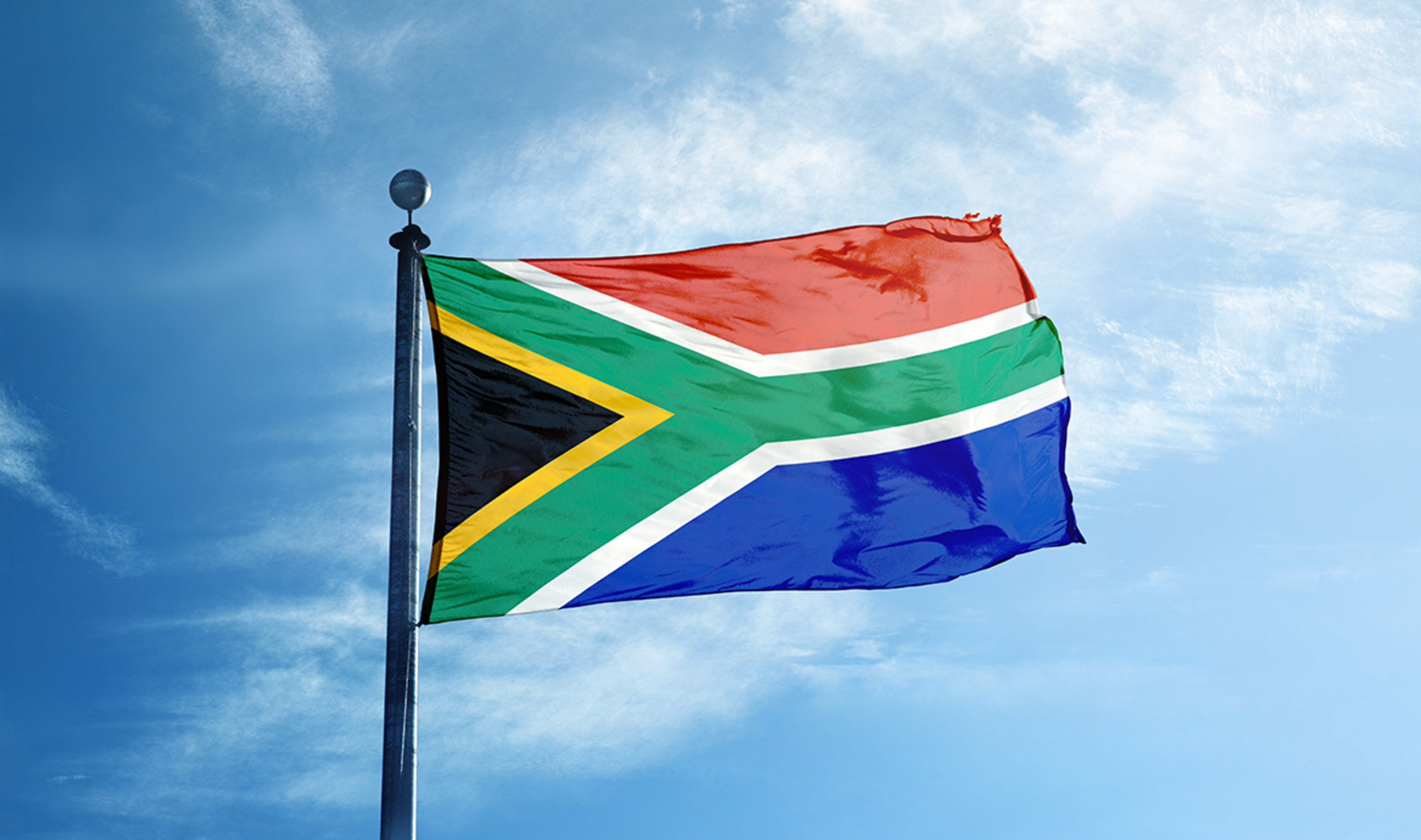
South Africa boasts a tapestry of remarkable individuals whose contributions have left an indelible mark on the world stage. From the realms of politics and activism to the glitz of entertainment, this article celebrates the achievements of famous people from South Africa.
Nelson Mandela - The Father Of The Nation
Nelson Mandela, often revered as the "Father of the Nation," stands as an enduring symbol of courage, resilience, and reconciliation. Born in 1918 in the village of Mvezo, Mandela's journey unfolded against the backdrop of South Africa's tumultuous history. A lawyer by profession, Mandela's early activism against apartheid led to his imprisonment for 27 years. Despite the harsh conditions on Robben Island, Mandela emerged with an unwavering commitment to justice and equality.
His release in 1990 marked a turning point, signaling the end of apartheid and the beginning of a new era for South Africa. In 1994, Mandela made history by becoming the country's first black president, leading the nation through a period of transition and reconciliation. His presidency was characterized by efforts to dismantle the legacy of apartheid, foster national unity, and promote healing. Mandela's leadership extended beyond South Africa's borders, advocating for peace and human rights globally. His legacy is encapsulated in the Truth and Reconciliation Commission, a groundbreaking initiative to address the wounds of the past through open dialogue and forgiveness.
After leaving the presidency, Mandela continued his philanthropic work, focusing on issues such as education, healthcare, and HIV/AIDS awareness. His efforts earned him numerous awards, including the Nobel Peace Prize in 1993. Nelson Mandela's impact transcends political boundaries, leaving an indelible mark on the world. His life serves as a beacon of hope, reminding us of the power of forgiveness, reconciliation, and the enduring quest for justice. As the "Father of the Nation," Mandela's legacy lives on, inspiring generations to strive for a more inclusive and equitable world.
Charlize Theron - Hollywood Royalty With South African Roots
Charlize Theron, a luminary in the realm of Hollywood, is hailed as both an accomplished actress and a philanthropic force. Born on August 7, 1975, in Benoni, South Africa, her journey from a small town to international stardom is a testament to her talent and tenacity. Theron's breakthrough came with her mesmerizing performance in "Monster" (2003), earning her an Academy Award for Best Actress. This triumph marked the beginning of a prolific career, with her ability to seamlessly embody diverse roles in films like "Mad Max: Fury Road" and "Bombshell."
Beyond her cinematic achievements, Theron utilizes her platform to advocate for various social causes. Her commitment to ending HIV/AIDS in Africa led to the creation of the Charlize Theron Africa Outreach Project. The organization focuses on providing support and education to African youth, addressing the challenges of the HIV/AIDS epidemic. Theron's South African roots remain a significant aspect of her identity, and she actively promotes the rich cultural heritage of her homeland. Her success in Hollywood not only exemplifies her acting prowess but also serves as an inspiration for aspiring talents from South Africa and beyond.
As Hollywood royalty with South African roots, Charlize Theron continues to make an impact on and off the screen. Her ability to balance a successful career with philanthropy underscores her commitment to creating positive change, solidifying her place as a global icon with a heart deeply connected to her South African origins.
Desmond Tutu - A Voice For Justice And Equality
Desmond Tutu, a towering figure in the fight against apartheid and a beacon of justice and equality, was born on October 7, 1931, in Klerksdorp, South Africa. Ordained as an Anglican priest in 1960, Tutu emerged as a fearless advocate for human rights during a dark period in his country's history. Tutu's resolute stance against apartheid earned him the Nobel Peace Prize in 1984, recognizing his unwavering commitment to nonviolent resistance. As the first black Archbishop of Cape Town and bishop of the Church of the Province of Southern Africa, his pulpit became a powerful platform for condemning the oppressive policies of the apartheid regime.
Known for his charismatic and compassionate leadership, Tutu played a crucial role in the nation's transition to democracy. His efforts as the chairperson of the Truth and Reconciliation Commission provided a forum for victims and perpetrators to confront the atrocities of the past, fostering national healing. Beyond South Africa, Tutu continued to champion justice and equality globally. He advocated for numerous causes, from combating poverty and HIV/AIDS to promoting LGBTQ+ rights. Tutu's unwavering dedication to social justice made him a revered figure, earning him the title "Archbishop of the World."
Desmond Tutu's legacy endures as a testament to the transformative power of moral courage. His life's work, characterized by a relentless pursuit of justice, leaves an indelible mark on South Africa's history and the ongoing struggle for equality worldwide. The vibrant spirit of Desmond Tutu, the voice for justice and equality, resonates as an inspiration for generations to come.
Trevor Noah - Comedy's Global Ambassador
Trevor Noah, born on February 20, 1984, in Johannesburg, South Africa, has carved a unique path as Comedy's Global Ambassador. Rising from the vibrant streets of Soweto, Noah's journey from comedian to host of "The Daily Show" reflects his wit, charm, and insightful humor that transcends cultural boundaries. Noah's comedic prowess draws inspiration from his experiences growing up in post-apartheid South Africa. His ability to navigate complex social issues with humor has made him a household name, fostering cross-cultural understanding while eliciting laughter.
Taking the reins of "The Daily Show" in 2015, Noah brought his distinctive perspective to the global stage. His incisive commentary on political and social issues resonates with audiences worldwide, earning him critical acclaim and a dedicated following. Beyond the realm of comedy, Noah is an advocate for social justice. He uses his platform to address issues such as racial inequality, immigration, and cultural stereotypes. His memoir, "Born a Crime," offers a poignant and humorous reflection on his life under apartheid, becoming a bestseller and further cementing his role as a cultural influencer.
As Comedy's Global Ambassador, Trevor Noah continues to bridge gaps through laughter, fostering connections across borders. His impact extends beyond entertainment, challenging societal norms, and fostering a dialogue on issues that matter. In the ever-changing landscape of comedy and cultural discourse, Trevor Noah stands as a charismatic and influential figure, reminding us of the power of humor to transcend boundaries and unite people worldwide.
Miriam Makeba - The Empress Of African Song
Miriam Makeba, often referred to as the "Empress of African Song," was born on March 4, 1932, in Johannesburg, South Africa. A vocal powerhouse and activist, Makeba's influence extended far beyond the realms of music, leaving an indelible mark on the global stage. Makeba's music, rooted in the sounds of South Africa, blended traditional rhythms with modern styles, creating a unique and captivating sound. Her breakthrough came with the hit song "Pata Pata," propelling her to international fame and introducing the world to the richness of African music.
A staunch opponent of apartheid, Makeba used her platform to raise awareness about the injustices in her homeland. Forced into exile in the 1960s due to her activism, she continued to advocate for the anti-apartheid cause, addressing the United Nations and collaborating with fellow activists, including Harry Belafonte. Her musical journey took her to stages worldwide, and she became the first African woman to win a Grammy Award in 1966. Makeba's collaboration with artists like Paul Simon on the iconic album "Graceland" further elevated her status as a global cultural ambassador.
Miriam Makeba's impact transcends borders, as her music has become a universal language of resistance and celebration. Her legacy as the "Empress of African Song" endures, reminding us of the power of music to unite, inspire, and transcend the barriers of time and place.
Elon Musk - Innovator Extraordinaire
Elon Musk, the maverick entrepreneur and innovator extraordinaire, was born on June 28, 1971, in Pretoria, South Africa. Musk's visionary pursuits have reshaped industries, earning him a reputation as one of the most influential figures in technology and business. Founding companies like Tesla, SpaceX, Neuralink, and The Boring Company, Musk's impact extends from electric vehicles and space exploration to neurotechnology and infrastructure. Tesla's electric cars revolutionized the automotive industry, showcasing Musk's commitment to sustainable energy solutions.
SpaceX, under Musk's leadership, achieved historic milestones, including the first privately funded spacecraft to reach orbit and the development of reusable rocket technology. These achievements have not only propelled the space industry forward but have also paved the way for future interplanetary exploration. Musk's audacious goals include colonizing Mars, advancing artificial intelligence through OpenAI, and creating high-speed underground transportation systems. His ability to envision and actualize groundbreaking ideas has earned him a place as a trailblazer in the realm of innovation.
While Musk's approach is not without controversy, his impact on technology, transportation, and space exploration is undeniable. His relentless pursuit of innovation has positioned him as a driving force in shaping the future of humanity, solidifying his status as an innovator extraordinaire whose influence extends well beyond the boundaries of conventional industries.
Caster Semenya - Breaking Barriers In Athletics
Caster Semenya, born on January 7, 1991, in Polokwane, South Africa, stands as a trailblazer in the world of athletics, breaking barriers and challenging preconceived notions. Semenya's remarkable journey is characterized by her extraordinary talent, resilience, and commitment to overcoming societal challenges. A middle-distance runner, Semenya gained international attention with her exceptional performances on the track. However, her success also brought her to the center of a controversial debate surrounding gender identity in sports. Despite facing challenges and controversies, Semenya has remained steadfast in her pursuit of excellence.
Her Olympic gold in the 800 meters at the 2012 London Games and subsequent victories solidified her status as one of the world's premier middle-distance runners. Semenya's athleticism, marked by her unparalleled speed and endurance, has earned her admiration from fans worldwide. Beyond the track, Semenya has become a symbol of resilience and advocacy. Her legal battles challenging regulations on testosterone levels in female athletes underscore her commitment to breaking down discriminatory barriers and promoting inclusivity in sports.
Caster Semenya's impact extends beyond her achievements, inspiring discussions about gender equality, identity, and the evolving landscape of sports. Her journey catalyzes reevaluating policies and fostering a more inclusive and equitable environment for athletes around the world, marking her as a pioneering force in the realm of athletics.
J.R.R. Tolkien - Literary Mastermind With South African Roots
J.R.R. Tolkien, a literary mastermind celebrated for his enchanting tales of Middle-earth, was born on January 3, 1892, in Bloemfontein, South Africa. Although he spent much of his life in England, Tolkien's South African roots played a significant role in shaping his creative vision. Best known for "The Hobbit" and "The Lord of the Rings" trilogy, Tolkien's works have left an indelible mark on the fantasy genre. His meticulously crafted worlds, populated by hobbits, elves, and dwarves, captivated readers with their rich mythology, languages, and intricate storytelling.
Tolkien's South African upbringing influenced his love for nature and languages, elements that permeate his fictional landscapes. The landscapes of Middle-earth, with their diverse ecosystems and majestic scenery, draw parallels to the beauty of the South African landscapes Tolkien experienced during his childhood. As a philologist and professor, Tolkien's linguistic expertise added depth to his fictional realms. The creation of Elvish languages and the intricate details of the cultures in Middle-earth showcased his dedication to world-building, a skill honed, in part, by his exposure to the linguistic diversity of South Africa.
J.R.R. Tolkien's legacy endures, enchanting readers across generations. His literary contributions, informed by his South African roots, have not only influenced the fantasy genre but have also become a timeless source of inspiration for writers, filmmakers, and fans worldwide. Tolkien's ability to transport readers to magical realms reflects not only his literary brilliance but also the enduring influence of his South African heritage on the realms of imagination.
Thuli Madonsela - Advocate For Justice And Human Rights
Thuli Madonsela, born on September 28, 1962, in Soweto, South Africa, stands as a formidable advocate for justice and human rights. Her impactful career, marked by unwavering dedication to public service, has left an indelible mark on the legal and human rights landscape in South Africa. Madonsela served as South Africa's Public Protector from 2009 to 2016, a role that garnered widespread respect for her fearless pursuit of accountability and transparency. In this position, she took on high-profile cases, investigated corruption allegations, and acted as a champion for the rights of ordinary citizens against abuse of power.
Notably, Madonsela's investigation into the "State Capture" allegations, involving corruption at the highest levels of government, showcased her commitment to upholding the principles of justice. Her work played a crucial role in exposing wrongdoing and fostering a culture of accountability in South African governance. Beyond her official capacities, Thuli Madonsela is an advocate for human rights, gender equality, and social justice. Her influence extends beyond the borders of South Africa, as she actively engages in international forums to promote human rights and good governance.
Madonsela's legacy is one of courage and resilience, embodying the spirit of justice and human rights. Her impact on South Africa's legal and ethical landscape continues to inspire a new generation of advocates, underscoring the transformative power of one individual's commitment to the pursuit of justice and human dignity.
Hugh Masekela - Jazz Legend And Cultural Ambassador
Hugh Masekela, a jazz legend and cultural ambassador, was born on April 4, 1939, in Witbank, South Africa. Renowned for his mastery of the trumpet, Masekela's influence on the world of music extended far beyond his homeland, marking him as a global icon. Masekela's journey through the vibrant and diverse sounds of jazz began in the heart of South Africa's townships. His early exposure to music was a reflection of the rich cultural tapestry that would later define his distinctive style. In the 1950s, Masekela's musical pursuits took him abroad, where he further honed his skills, studying at the Manhattan School of Music in New York.
Throughout his career, Masekela's music served as a powerful voice against the injustices of apartheid. Songs like "Grazing in the Grass" and "Bring Him Back Home" became anthems of resistance, amplifying the call for freedom and equality. Masekela's fusion of jazz with South African rhythms and his ability to infuse political messages into his music set him apart as a groundbreaking artist. Beyond his musical contributions, Masekela played a crucial role as a cultural ambassador, using his platform to showcase the vibrancy and richness of South African culture to the world. His collaborations with artists from various genres further emphasized the universal language of music.
Hugh Masekela's impact on jazz, activism, and cultural diplomacy is immeasurable. His legacy endures in the hearts of those who were touched by his music and inspired by his unwavering commitment to social justice. As a jazz legend and cultural ambassador, Masekela's influence continues to resonate globally, leaving an indelible mark on the world of music and the broader cultural landscape.
Frequently Asked Questions
Which Famous Celebrity Was Born In South Africa?
Charlize Theron. Charlize Theron was born in Benoni, a city in the greater Johannesburg area of South Africa, the only child of Gerda Theron (née Maritz) and Charles Theron. She was raised on a farm outside the city.
Who Is South Africa's Famous Leader?
Nelson Mandela (born July 18, 1918, Mvezo, South Africa—died December 5, 2013, Johannesburg) Black nationalist and the first Black president of South Africa (1994–99).
Who Is The Most Followed Celebrity On Instagram In South Africa?
In the section titled "All About Celebrity," cricketer AB de Villiers remains the most popular personality in South Africa, followed by Boity Thulo, Minnie Dlamini, and Bonang Matheba. The research was done in collaboration with Brandwatch, YOUKNOW, Psychographica, TGI/Ask Afrika, and GlobalWebIndex.
Final Words
In conclusion, the famous people from South Africa span a multitude of disciplines, reflecting the nation's diversity and resilience. Their stories illuminate the triumphs and challenges faced by South Africans, offering inspiration to a global audience. From political leaders and cultural ambassadors to entertainment icons and innovators, these individuals have collectively shaped South Africa's narrative, leaving an enduring legacy on the world stage. Their contributions continue to inspire and remind us of the strength that emerges from diversity, perseverance, and the pursuit of justice.
Jump to
Nelson Mandela - The Father Of The Nation
Charlize Theron - Hollywood Royalty With South African Roots
Desmond Tutu - A Voice For Justice And Equality
Trevor Noah - Comedy's Global Ambassador
Miriam Makeba - The Empress Of African Song
Elon Musk - Innovator Extraordinaire
Caster Semenya - Breaking Barriers In Athletics
J.R.R. Tolkien - Literary Mastermind With South African Roots
Thuli Madonsela - Advocate For Justice And Human Rights
Hugh Masekela - Jazz Legend And Cultural Ambassador
Frequently Asked Questions
Final Words

Paolo Reyna
Author
Paolo Reyna is a writer and storyteller with a wide range of interests. He graduated from New York University with a Bachelor of Arts in Journalism and Media Studies.
Paolo enjoys writing about celebrity culture, gaming, visual arts, and events. He has a keen eye for trends in popular culture and an enthusiasm for exploring new ideas. Paolo's writing aims to inform and entertain while providing fresh perspectives on the topics that interest him most.
In his free time, he loves to travel, watch films, read books, and socialize with friends.
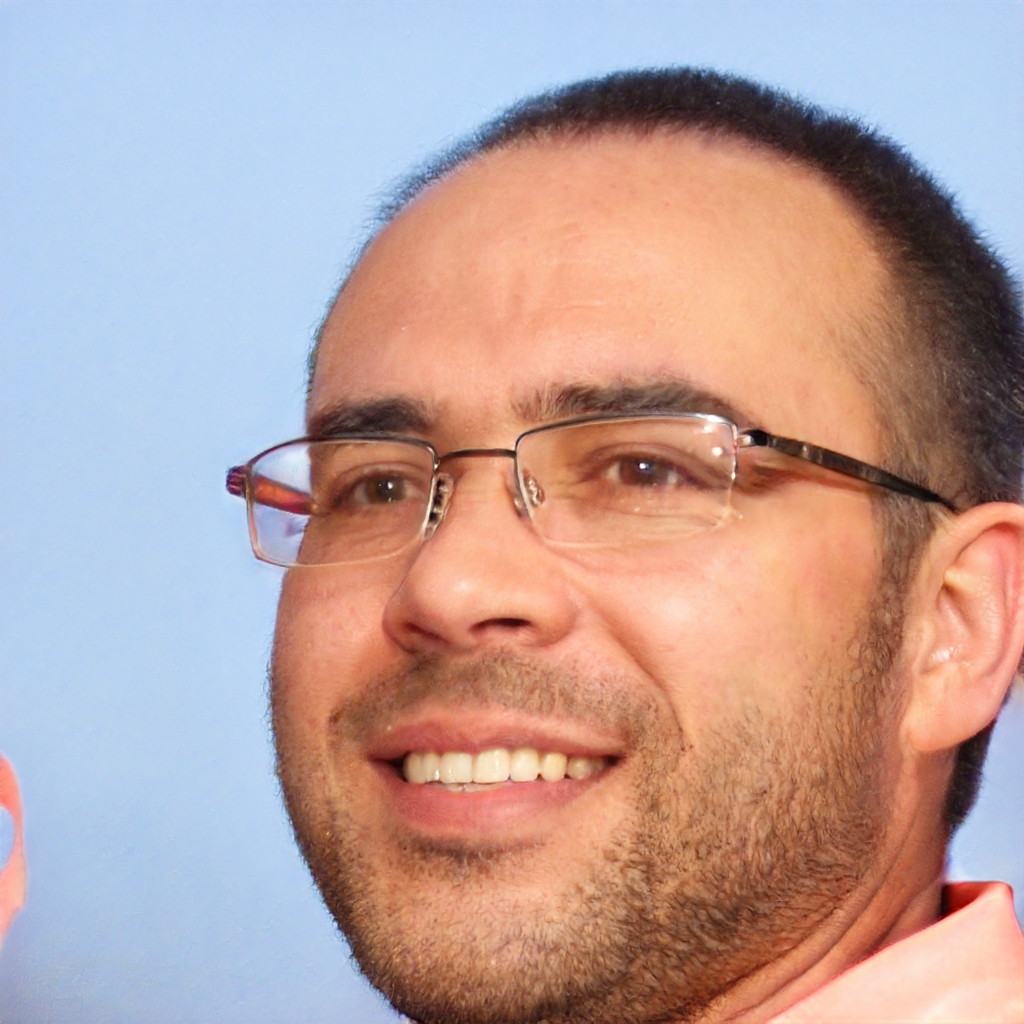
Iram Martins
Reviewer
Iram Martins is a seasoned travel writer and explorer with over a decade of experience in uncovering the world's hidden gems. Holding a Bachelor's degree in Tourism Management from the University of Lisbon, Iram's credentials highlight his authority in the realm of travel.
As an author of numerous travel guides and articles for top travel publications, his writing is celebrated for its vivid descriptions and practical insights.
Iram’s passion for cultural immersion and off-the-beaten-path adventures shines through in his work, captivating readers and inspiring wanderlust.
Outside of his writing pursuits, Iram enjoys learning new languages, reviewing films and TV shows, writing about celebrity lifestyles, and attending cultural festivals.
Latest Articles
Popular Articles
